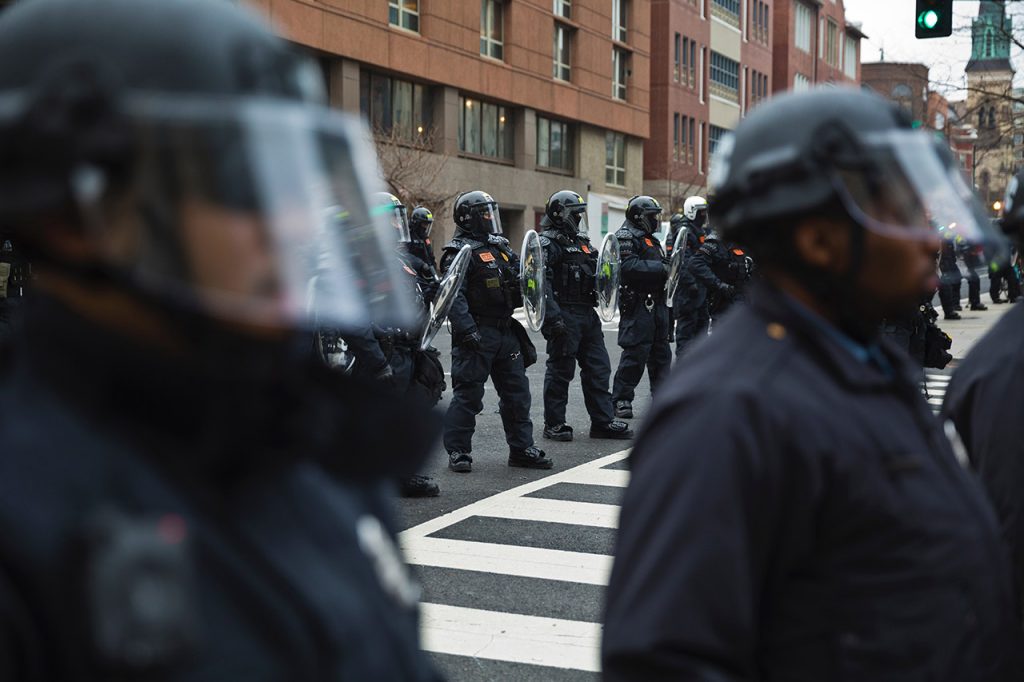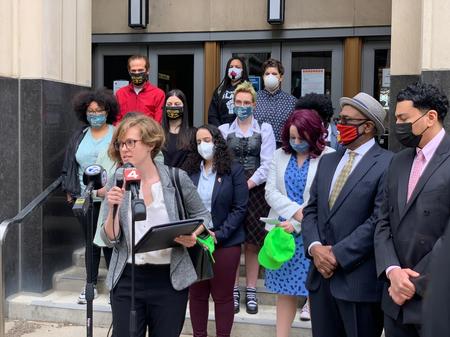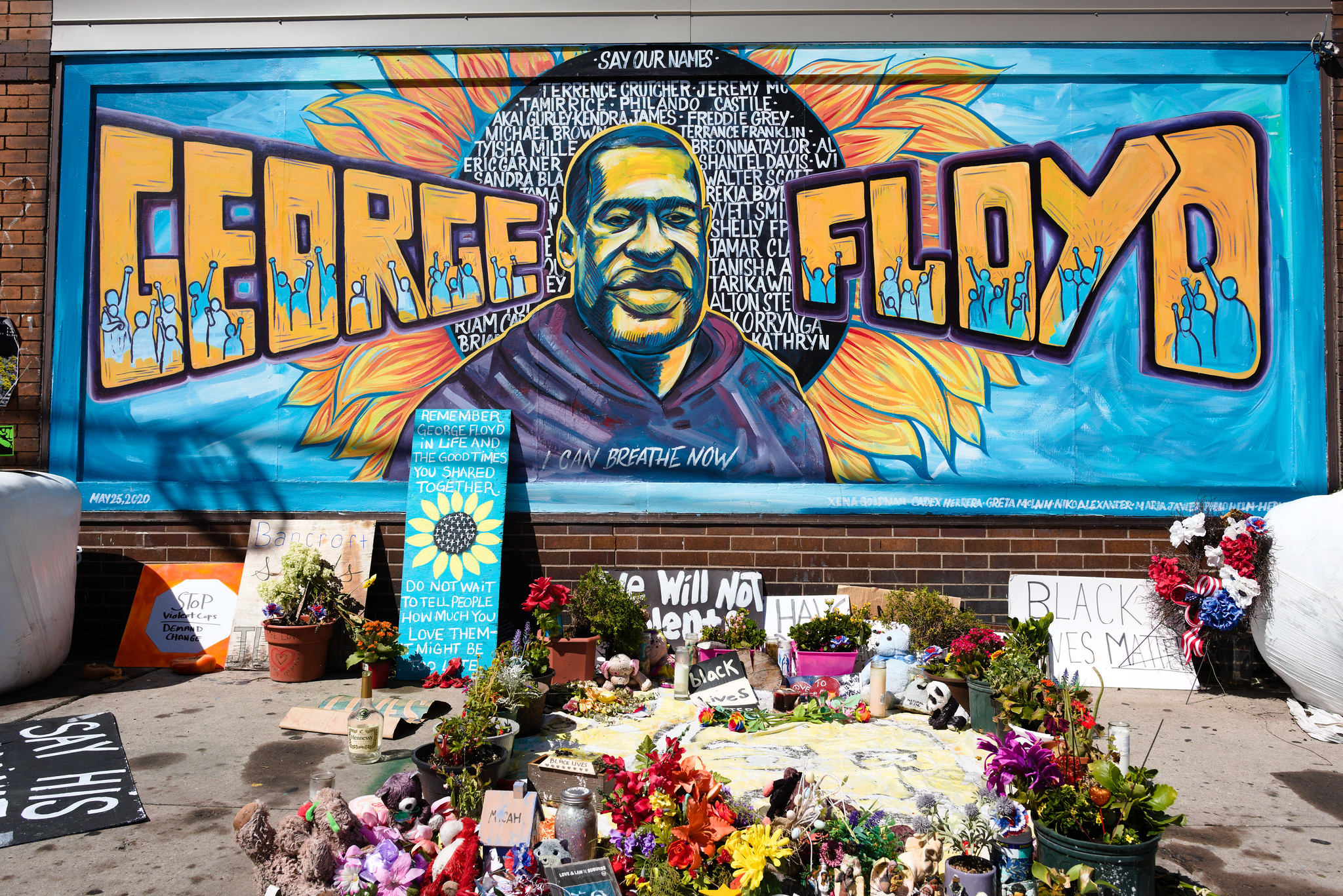New Report Shows American Journalists Attacked and Arrested at an Unprecedented Rate in 2020
The analysis by Reporters Committee for Freedom of the Press found that journalists were attacked over 400 times at protests — with most of those attacks perpetrated by police.

Since the murder of George Floyd last May, millions of Americans protested in the streets calling for changes to policing and an end to systemic racist policies. Journalists were there every step of the way, covering the marches and law enforcement’s — at times — violent response to those demonstrations.
The Reporters Committee for Freedom of the Press has released its annual report. In 2020, 139 journalists were arrested or charged with a crime, a nearly 1,500% percent jump from 2019, when nine journalists were arrested.
In addition, the analysis found that journalists were attacked 438 times at protests, with 80% of those attacks perpetrated by police. In about half of those assaults, the press were deliberately targeted.
Sarah Matthews, the senior staff attorney at the Reporters Committee for Freedom of the Press, says the militarization of police departments played into those attacks.
“We saw a lot of journalists being hit by these rubber-coated bullets or other projectiles. We’re seeing flash grenades and pepper spray. The tracker will not count, if a large crowd is sprayed with pepper spray — that’s not going to count as an actual attack on a specific journalist, unless it leads to some serious injury on the part of the journalist. We did see cases where members of the press identified themselves as press and then police, you know, came up and like pepper sprayed them right in the face,” she says.
Click on the audio player to hear Russ McNamara’s conversation with Sarah Matthews, and read excerpts, edited for clarity, below:
How much does the hostile rhetoric from politicians play into attacks on members of the press?
“It does seem like you’re seeing a trickle-down effect of years now of relentless verbal attacks on the press. Calling legitimate reporting fake news. Calling members of the media ‘enemies of the people’. This kind of direct targeting by not only former President Trump, but just, so many other politicians at this point, I think it really takes a toll.”
Was 2020 a learning experience for journalists?
“A lot of journalists had to learn how to find body armor, just to cover a protest. I think we just saw a shift where having a press badge suddenly felt like having a bull’s-eye. They just felt like they’ve got a target on their backs. And so — for the first time — we were really getting a lot of questions about whether journalists should even identify themselves as members of the press, which has been a long time, standard practice and best practice. We’ve always said they should, but journalists are feeling like this [wearing a press pass] is really putting themselves at risk.”
Related: Reasonable and Necessary? The Night Detroit Police Justified Violence
It wasn’t just attacks — it was also arrests.
“Thankfully, vast majority of journalists who were arrested were ultimately never charged, or the charges were dropped pretty quickly. After, prosecutors looked at that and realized, these journalists are just doing their job. They have a First Amendment right to report on these protests. And ‘we shouldn’t be prosecuting news gathering. We can’t do that. That’s unconstitutional.’ In the vast majority of cases, the charges have been dropped pretty quickly, if they’re even brought it all.”

“There was one case that really stood out, and that was the case of Des Moines Register journalist Andrea Sahouri. She was arrested on May 31, while covering a Black Lives Matter protest in Des Moines, Iowa. She was just there doing her job as a journalist covering the protest. She was charged with failure to disperse and interference with official acts, even though she was arrested while trying to leave the protest after they had issued a dispersal order. But prosecutors in Polk County, Iowa refused to dismiss the charges against her. And the case went to trial in March. And thankfully, a jury acquitted her. But the fact that she had to even stand trial for this is quite chilling.”
How do we fix the current climate journalists are facing?
“I do think it’s imperative that law enforcement is held accountable for these actions. And civil rights lawsuits are a good way to do that. I think there’s a lot more that needs to be done like trainings of police departments on the journalist’s first amendment right to report on protests and to record. I think we really need to do a better job of educating the public about the value of a free and independent press, and how important it is to our democracy.”
Trusted, accurate, up-to-date
WDET is here to keep you informed on essential information, news and resources related to COVID-19.
This is a stressful, insecure time for many. So it’s more important than ever for you, our listeners and readers, who are able to donate to keep supporting WDET’s mission. Please make a gift today.

